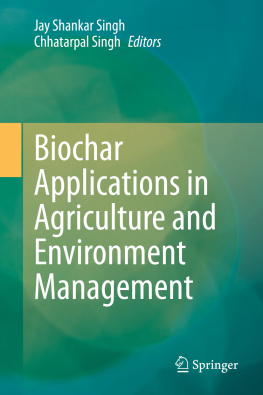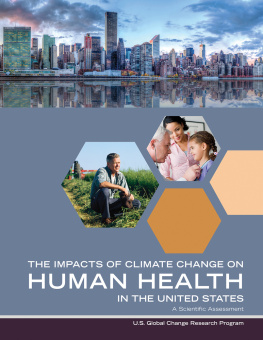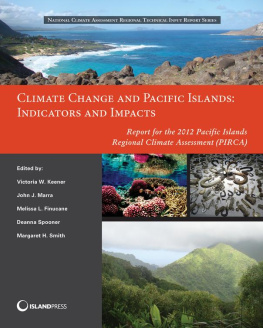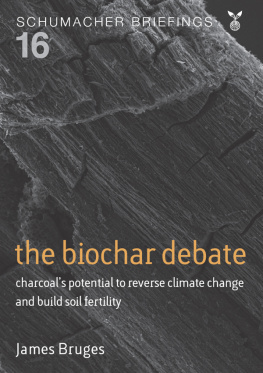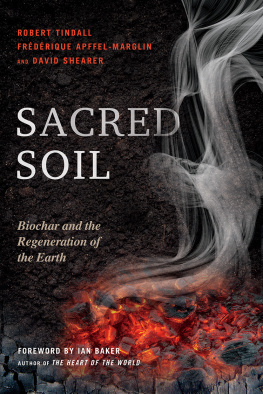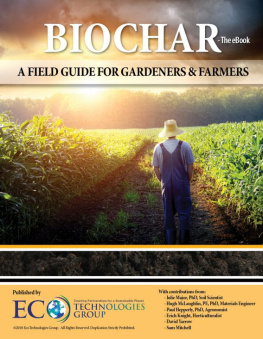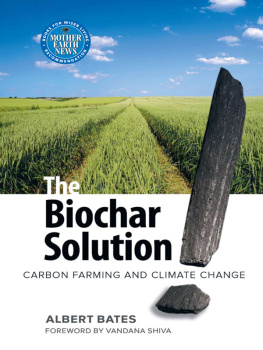Sebastian B. Scholz - Biochar Systems for Smallholders in Developing Countries: Leveraging Current Knowledge and Exploring Future Potential for Climate-Smart Agriculture
Here you can read online Sebastian B. Scholz - Biochar Systems for Smallholders in Developing Countries: Leveraging Current Knowledge and Exploring Future Potential for Climate-Smart Agriculture full text of the book (entire story) in english for free. Download pdf and epub, get meaning, cover and reviews about this ebook. year: 2014, publisher: World Bank Publications, genre: Home and family. Description of the work, (preface) as well as reviews are available. Best literature library LitArk.com created for fans of good reading and offers a wide selection of genres:
Romance novel
Science fiction
Adventure
Detective
Science
History
Home and family
Prose
Art
Politics
Computer
Non-fiction
Religion
Business
Children
Humor
Choose a favorite category and find really read worthwhile books. Enjoy immersion in the world of imagination, feel the emotions of the characters or learn something new for yourself, make an fascinating discovery.

- Book:Biochar Systems for Smallholders in Developing Countries: Leveraging Current Knowledge and Exploring Future Potential for Climate-Smart Agriculture
- Author:
- Publisher:World Bank Publications
- Genre:
- Year:2014
- Rating:3 / 5
- Favourites:Add to favourites
- Your mark:
Biochar Systems for Smallholders in Developing Countries: Leveraging Current Knowledge and Exploring Future Potential for Climate-Smart Agriculture: summary, description and annotation
We offer to read an annotation, description, summary or preface (depends on what the author of the book "Biochar Systems for Smallholders in Developing Countries: Leveraging Current Knowledge and Exploring Future Potential for Climate-Smart Agriculture" wrote himself). If you haven't found the necessary information about the book — write in the comments, we will try to find it.
Biochar is the carbon-rich organic matter that remains after heating biomass under minimization of oxygen during a process called pyrolysis. Its relevance to deforestation, agricultural resilience, and energy production, particularly in developing countries, makes it an important issue. This report offers a review of what is known about opportunities and risks of biochar systems. Its aim is to provide a state of the art overview of current knowledge regarding biochar science. In that sense the report also offers a reconciling view on different scientific opinions about biochar providing an overall account that shows the various perspectives of its science and application. This includes soil and agricultural impacts of biochar, climate change impacts, social impacts, and competing uses of biomass. The report aims to contextualize the current scientific knowledge in order to put it at use to address the development- climate change nexus, including social and environmental sustainability. The report is organized as follows: chapter one offers some introductory comments and notes the increasing interest in biochar both from a scientific as well as from a practitioners point of view; chapter two gives further background on biochar, describing its characteristics and outlining the way in which biochar systems function. Chapter three then considers the opportunities and risks of biochar systems, chapter four presents a typology of biochar systems emerging in practice, particularly in the developing world. New, International Organization for Standardization (ISO) 14040-based life-cycle assessments of the net climate change impact and the net economic profitability of three biochar systems with data collected from relatively advanced biochar projects were conducted for this report and are presented in chapter five, providing a novel understanding of the full life-cycle impacts of these known biochar systems. Chapter six investigates various aspects of technology adoption, including barriers to implementing promising systems, focusing on economics, carbon market access, and sociocultural barriers. Finally, the status of knowledge regarding biochar systems is interpreted in chapter seven to determine potential implications for future involvement in biochar research, policy, and project formulation.
Sebastian B. Scholz: author's other books
Who wrote Biochar Systems for Smallholders in Developing Countries: Leveraging Current Knowledge and Exploring Future Potential for Climate-Smart Agriculture? Find out the surname, the name of the author of the book and a list of all author's works by series.

